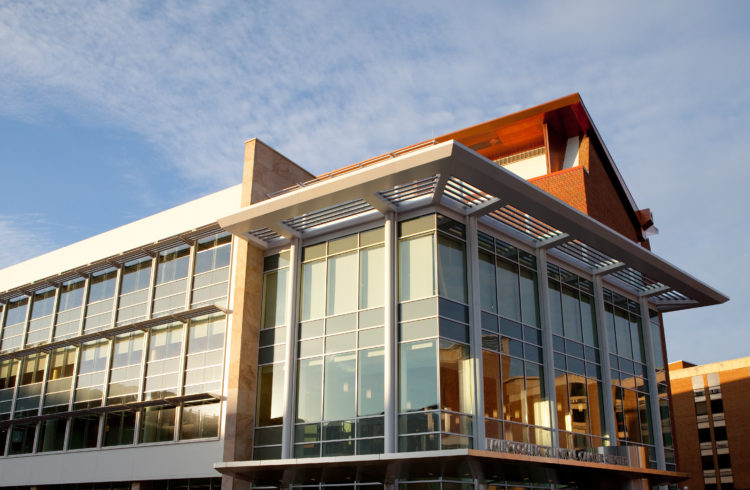

UVA Medical Center has earned a national “Most Wired” award for using technology to better support quality patient care.
The award is based on a national survey of how hospitals use technology conducted by the College of Healthcare Information Management Executives (CHIME). Hospitals across the U.S. are surveyed about their use of technology in several areas, including security, quality and safety, infrastructure, analytics and patient engagement.
On a scale of 1-10, UVA was rated a level 8. According to CHIME, organizations at this level are using technologies and strategies “to help them analyze their data and are starting to achieve meaningful clinical and efficiency outcomes.” UVA’s highest ratings came in infrastructure, security and the ability to recover its information technology systems following an unplanned event.
“This survey is a tool for us to see how we compare to other healthcare organizations and how they leverage technology as a strategy. It really measures what you are doing to move forward and what you are doing to be a rigorous information technology organization,” said Robin Parkin, UVA Health’s interim chief information and technology officer. “This award from CHIME highlights the progress we have made as an organization, as well as the dedication of our Health IT team to support our patients and our health system.”
UVA’s information technology team will continue to focus on improvements that benefit patients and providers. “Patients have very different expectations for service than they did in the past,” she said. “We are developing more ways to use technology to enhance patient engagement.”
As one example, UVA has started texting reminders and requests to confirm appointments to patients having surgery or gastrointestinal procedures. Families of surgical patients can also provide cell numbers on the day of the procedure to receive updates, Parkin said. In November, a five-clinic pilot will test texting to patients with outpatient clinic appointments, providing appointment reminders as well as information such as clinic addresses. In addition, improvements that make UVA care providers more efficient and give them back additional time to focus on patient care will be a priority.
UVA is also exploring how to expand access to care using telehealth, she said. One possible example: video visits with a care provider through MyChart, UVA’s secure patient portal.“We want to make it easier for patients to communicate and engage with us,” Parkin said.



